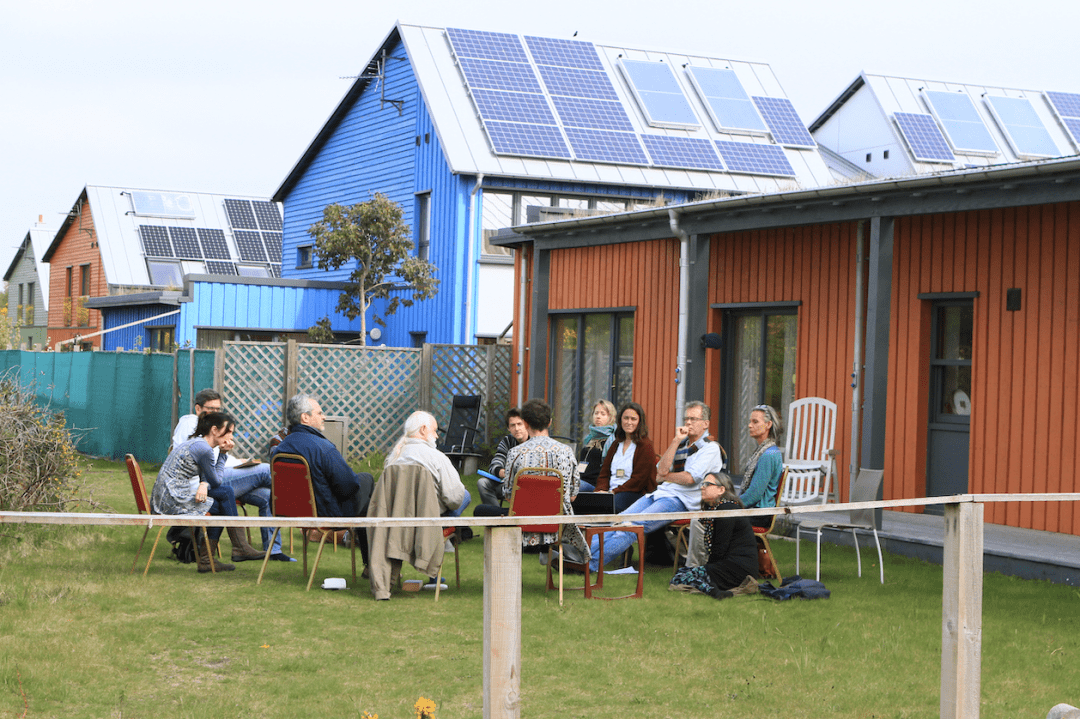Tears Ritual Vision: Grief Work in Gallatin Valley
Kris Drummond | Friday Nov. 1st, 2019
“My grief says that I dared to love, that I allowed another to enter the very core of my being and find a home in my heart. Grief is akin to praise; it is how the soul recounts the depth to which someone has touched our lives.To love is to accept the rites of grief.”
- Francis Weller

When I finally slow down at the end of another scattered day filled with errands and emails and the speed of progress; when I’m home alone or walking in the park and watching the sunset; when my phone is in my pocket and my headphones are on my desk and I notice the rhythm of my breath and what my emotions want to say, that’s when the grief comes.
It lives in my belly; a shadow I swallowed long ago, remembered in my growing need to feel alive. The more I study my grief, the more I recognize it lives side-by-side with the love - in fact, is the love - that I have for life and the beings I share it with. In the words of Martin Prechtel, “Grief expressed out loud for someone we have lost, or a country or home we have lost, is in itself the greatest praise we could ever give them. Grief is praise, because it is the natural way love honors what it misses.”
I’ve long intuited I need to grieve more deeply than I believed possible, and in talking with others, I hear similar sentiments. Even after years of inner work, I live with a numb patch over my heart, protecting the frozen emotion I haven’t been safe enough to encounter. Even after countless hours in therapy and meditation, extended retreats, ceremonies and books, there’s a level of release I haven’t allowed; a gravity pulling me down, insisting that I give myself to the immensity of my sorrows so that I may fully embody my love.
Despite a clear intuition of this essential need, the depth I’m seeking remains elusive. When I do feel it, I let it in just enough to relieve the pressure. Once a few stunted tears fall, the aching fullness retreats, disappearing back inside as my mind regains control. Over the course of years, this frustrating cycle has led me to question why authentic grieving is so difficult.
Maybe it’s because, in the words of renowned grief activist Francis Weller, “grief is subversive, undermining our society’s quiet agreement that we will behave and be in control of our emotions. It is an act of protest that declares our refusal to live numb and small. There is something feral about grief, something essentially outside the ordained and sanctioned behaviors of our culture.”
Various personal tragedies gave me the opportunity to encounter this truth. When people die, I tend to cry in private bursts. Sometimes it happens while writing eulogies, or in a spurt of tearful remorse in conversation, or a quiet sobbing while standing near a casket. Funerals take on a strange discord as people sit, wracked between the authentic need to let go and the public imperative to keep it together. The reception is full of nice words and cake, and then we all go home. The rest, it’s implied, is left for us to do on our own time, after work and on weekends.
The ultimate result of stunted grieving is stunted living. When our sorrow isn’t moved and expressed, it departs from conscious awareness and takes up residence in the unconscious, showing up in dreams and neuroses, or as somatic symptoms in the body. Our emotional lives become less dynamic and the capacity to feel is diminished. We freeze over, living more from our heads and the achievement agenda and less from our hearts and the embodied connection to life. Busyness and distraction keep us moving fast enough to create the illusion of having moved on. This oozing, half-hidden wound of the modern condition is what we mistakenly call “normal.”
While loss is an inevitable part of every life that’s ever been, the current age of mass extinction, ecocide, climate crisis, political polarization and systemic breakdown are producing levels and types of grief that very few other humans have dealt with in the history of life on Earth. Anyone paying courageous attention to our historical moment knows that things are coming undone. And everyone, on a deep level, intuits it.
The science is unanimous. Most of us alive today, almost everyone reading these words, is going to experience the disintegration of life as we’ve known it. We’re likely going to witness thousands of species die, island nations get submerged under rising seas, resource wars and emergency migrations become increasingly frequent, and the end of the growth-based economic frenzy. While efforts to counteract the climate emergency by reducing carbon emissions are still valid and will determine the level of destruction we encounter, catastrophic climate-related crises are increasing in frequency and severity and will continue to do so.
So. Grief. How do we grapple with the scale of the endings we’re living through? How do we pierce the denial of a culture bent on frenetic consumption? How do we find the courage to feel the truth of the outrage, the sorrow, the wrenching and inconceivable reality that we are complicit in the destruction of everything we love? When those around us and we ourselves are still entranced by the myth of progress, how do we break the chains of numbness and distraction to face reality?
The best answer I’ve come to in my decade of searching is that we do it together. As Timothy Leary said to an earlier generation of hopeful seekers looking for a way out of the destruction, we must “find the others.” We were never meant to deal with the immensity of our pain alone. Especially at this time of such incredible loss, we must come together to feel all of what we’re losing so that we might find a way forward in love.
Remembering how to be together, to authentically and deeply connect, is at the center of grief work. The ache we carry is due in part to our isolation. Something in our organisms knows that we’re meant to experience this life in community and we can’t open to the full depths of sorrow without the support of the relational container otherwise known as our human family.
Beyond the container, another lost element of humanity that allows us to tap into the rich depths of the heart is ritual. As Francis Weller says, “The urge to create rituals to help us hold the intensity of day-to-day living exists deep within our psychic structure. For most of our history, rituals provided the means by which the community could address the need for healing and renew the people’s relationship with the place where they lived.” On a fundamental level, this is our task today. We have to fall back in love with our home, and the only way to do that is to grieve all the ways we’ve neglected this most primary of human duties.
On November 15th - 17th, a newly-formed coalition of heartful humans called The Bozeman Renewal Network is hosting a ritual grief facilitation workshop. This training is intended to prepare twenty people with the skills needed to begin hosting regular ritual grief circles in the Gallatin Valley.
The vision we’re holding imagines a monthly meetup somewhere safe, comfortable, and a little bit sacred. Members who participated in the training will be there, setting up the room, turning on the heat, opening to the mystery, and preparing to hold space for anything and everything that people came to feel. We gather in a circle and share our stories, making eye contact for a few timeless moments. We might even hug.
As the ritual commences, we are invited to feel. Together. Perhaps a howling revery fills the space; weeped prayers echoing up and out from the untouched places in our hearts. Who knows how wild we’ll get - it’s different each time. Maybe we sit in a gentle silence, or murmur, or meditate. But without fail, some piece of us, the part that remembers wolf howls echoing to the cadence of dancing flames under a black sky, will peek its face out from the shadows. For an unbelievable moment, we’ll remember what the word “belonging” really means.
And when it’s over, we’ll go home, back to the speed of commerce and numbers and control. But we’ll be changed. We will know, deeper than we can ever forget, that as David Whyte says, “the world was meant to be free in.” Somehow, we won’t return the same. And maybe, just maybe, with our newly-exposed hearts, we’ll have the courage to start again, relearning how to live like it matters.
For more information email Kris at bozemanrenewal@gmail.com or visit The Bozeman Renewal Network.
| Tweet |
